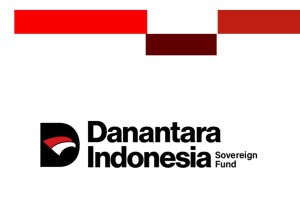Six coral triangle countries set conservation targets for 2025 in Dili
The 19th Senior Officials Meeting of the Coral Triangle Initiative on Coral Reefs, Fisheries, and Food Security (CTI-CFF) that was held in Dili, Timor Leste on Monday-Friday, December 2-6, 2024 have resulted in several conservation targets aimed at addressing overfishing, climate change, and pollution.
Six countries of the Coral Triangle region − Indonesia, Malaysia, Papua New Guinea, the Solomon Islands, the Philippines, and Timor Leste − gathered in Dili to formulate conservation targets for 2025. Overfishing, climate change, and pollution threaten marine ecosystems and the livelihoods of the 130 million people living along the coastlines of the Coral Triangle.
Coral Triangle is a marine area that spans Southeast Asia and the Pacific Ocean, covering approximately 6 million square kilometers. This region is known for its rich marine biodiversity, containing 76 percent of the world’s coral species and 37 percent of the world’s reef fish species. It provides more than 20 percent of the world’s seafood and supports the economy of the Asia-Pacific.
Celestino da Cunha Barreto, Chair of the Senior Officials Committee and Director-General of Fisheries, Aquaculture, and Water Resources for Timor-Leste, emphasized that the targets were designed to address the mounting pressures on the region’s ecological strength, including coral bleaching due to climate change, habitat destruction, and illegal fishing.
He called on the international community to join efforts in protecting the Coral Triangle, which he described as the heart of marine biodiversity and a pillar of global food security.
"Our oceans sustain millions of livelihoods, and this is a shared global responsibility," Celestino said as quoted in a statement on Friday, December 6, 2024.
The meeting also highlighted the need for increased collaboration in managing large marine areas, protecting ecologically important habitats, and reducing human impact on marine ecosystems.
The key priorities for 2025 include enhancing cooperation in the Sulu-Sulawesi, Bismarck-Solomon, and Lesser Sunda seas, with a particular focus on migratory species and research.
Frank Keith Griffin, Executive Director of the CTI-CFF Regional Secretariat, underscored the Coral Triangle countries’ commitment to the global 30x30 target, which aims to protect 30 percent of the world’s oceans by 2030.
"Our commitment to 30x30 reflects not only regional responsibility but also a global imperative. The Coral Triangle is a treasure for all humankind, and it demands bold, collaborative action," Griffin said.
Efforts will also be expanded to enhance the effectiveness of Marine Protected Areas (MPAs) in the Coral Triangle, support the management network, and contribute to the United Nations Sustainable Development Goal (SDG) 14 on Life Below Water.
Strategic partnership
This year’s meeting also resulted in a strategic partnership agreement with the Coral Triangle Center (CTC), WWF Coral Triangle Program, and Universidade Nacional Timor Lorosa’e.
The agreement aims to strengthen MPA management and large marine area approaches through capacity-building initiatives and regional knowledge exchange.
These collective actions mark a significant step toward safeguarding the ecological and economic future of the Coral Triangle, ensuring its vital role in global marine biodiversity and food security for generations to come.
Already have an account? Sign In
-
Start reading
Freemium
-
Monthly Subscription
30% OFF$26.03
$37.19/MonthCancel anytime
This offer is open to all new subscribers!
Subscribe now -
Yearly Subscription
33% OFF$228.13
$340.5/YearCancel anytime
This offer is open to all new subscribers!
Subscribe now






